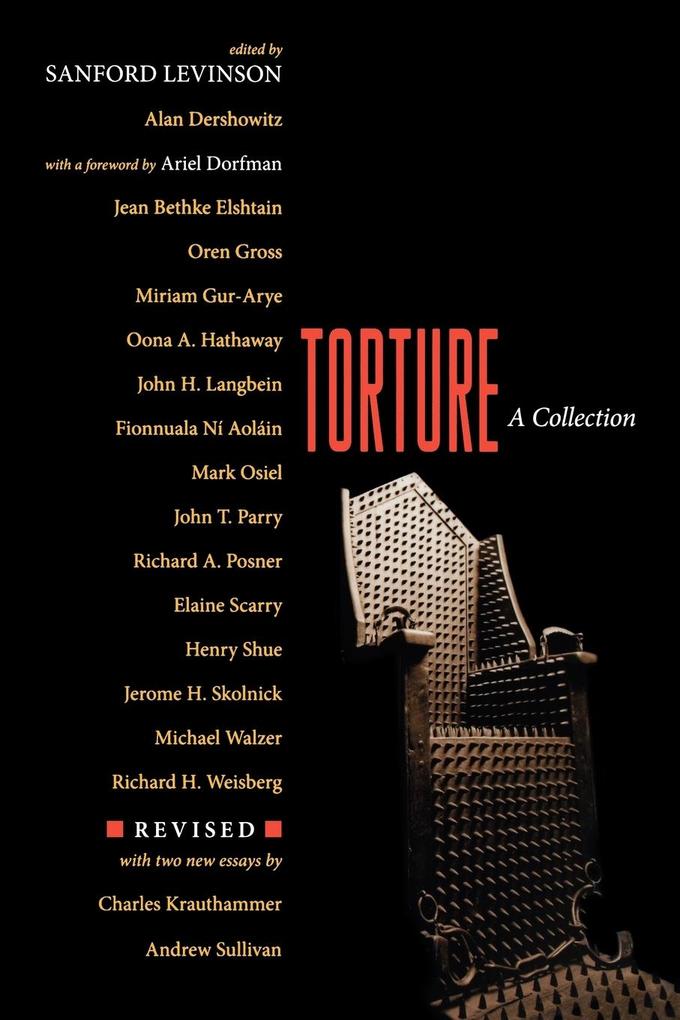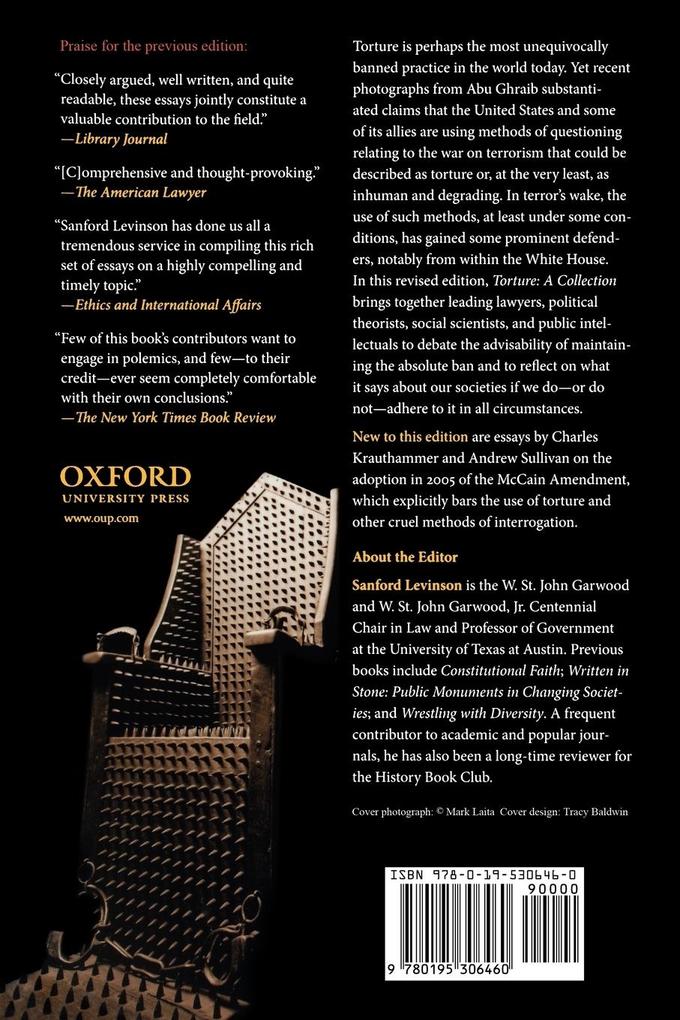"This superior collection of essays by 17 leading scholars provides a timely, penetrating investigation into this morally challenging but important topic.... It is a pleasure to read an edited book in which the chapters speak to each other. This is a well-crafted study in political ethics."--Choice" Few of this book's contributors want to engage in polemics, and few--to their credit--ever seem completely comfortable with their own conclusions."--The New York Times Book Review"[C]omprehensive and thought-provoking." --The American Lawyer"Sanford Levinson has done us all a tremendous service in compiling this rich set of essays on a highly compelling and timely topic." -- Ethics and International Affairs"Conceived wll before the Abu Ghraib story broke, Levinson's collection of essays by philosophers and lawyers provides a cooler, though not dispassionate, look at the issues surrounding torture. Contributors include Jean Bethke Elshtain, Richard Posner, Michael Walzer, and the inevitable Alan Dershowitz.... The collection considers the conditions under which torture might nonetheless be acceptable--notably, the 'ticking bomb' scenario, when the quick extraction of information can save many lives. Dershowitz argues that the normative case against torture remains strong but that under such conditions inhibitions will be overcome--and that it is best that any torturous interrogation be explicit and controlled. His critics denounce such a move as bringing torture into the realm of the legitimate. Other problems are raised, such as identifying the point at which pressure becomes torture."--Foreign Affairs"Closely argued, well written, and quite readable, these essays jointly constitute a valuable contribution to the field."--Library Journal













